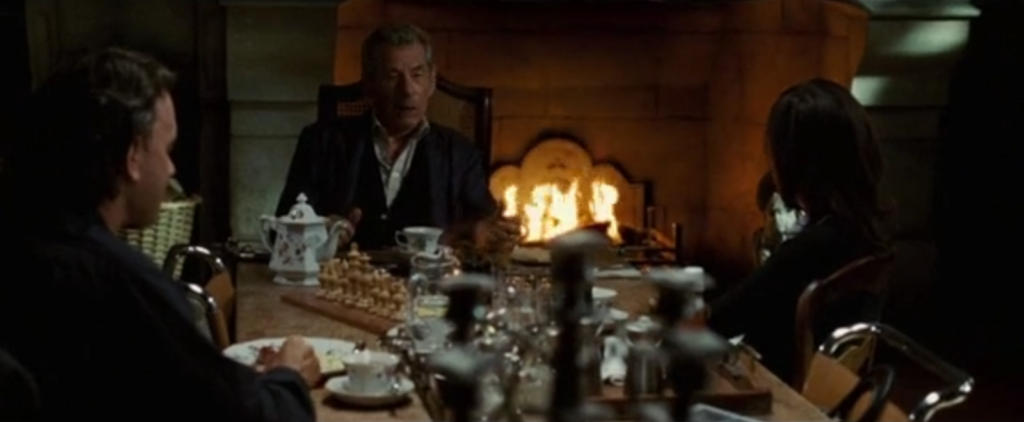Here’s an interesting observation about pop culture in 2021: there hasn’t been a book craze in quite a while. Some twenty years ago, there was the Harry Potter of course, then the Twilight series, the Hunger games trilogy but nothing seems to have captured the public’s imagination since then.1 One thing that did, smack dab in the Harry Potter period no less, was Dan Brown’s The Da Vinci code. It has plot holes big enough to hide an aircraft carrier in and the writing ain’t great, but it was huge. Naturally, a movie was made.
A movie with quite some star power, in fact: Tom Hanks, Audrey Tautou, Ian god-damn McKellen… Obviously, people thronged in the cinemas and made this film one of the biggest blockbusters of the year. It is also a rather bloated and insipid affair.
The plot deals with Robert Langdon, professor of symbology,2 who is the police’s prime suspect in a murder case. To prove his innocence he escapes with the help of the victim’s granddaughter. They end up at the place of a sophisticated friend of Langdon’s. There’s a chessboard there, of course, since that’s the canonical way to convey sophistication in movies.
But even if you take the canonical way, you still have to tread carefully or you might stumble.3 The director here did not do the former and indeed ended up doing the latter: white’s king and queen are swapped around.
But maybe this is subtle foreshadowing rather than a stupid oversight, because the host, as you would expect from someone who does this to a chess set, turns out to be evil.
Realism: 0/5 It is impossible to set up a starting position (i.e. all sixteen pieces on the first two ranks) which is both legal and incorrect. Since they managed the latter, they must have failed the former.
Probable winner: Well, the game hasn’t even started. But seeing that he doesn’t know how to set up the pieces, I’d wager that our heroes’ host ain’t the greatest player in history.
1. [Does Lucinda Riley’s Seven sisters series count? I don’t think it quite qualifies, partly because there’s been no movies.]↩
2. [This seems to not actually exist. It is presumably one of those newfangled fields of study which are brought to life my taking a noun and adding ‘-ogy’ at the end but with very little scientific content.]↩
3. [Or even end up in Rome!]↩
